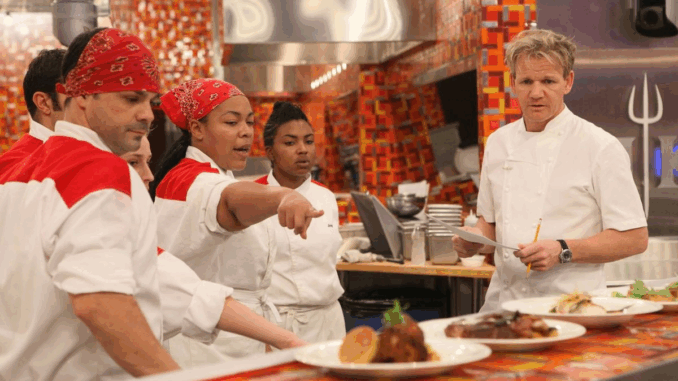
For years, chefs across the world have dreamed of being featured on one of Gordon Ramsay’s hit shows. The exposure, the mentorship, the fiery transformations—it all sounds like a golden opportunity. But now, some restaurateurs are speaking up, and their stories tell a very different tale.
Behind the bright lights and dramatic turnarounds of Kitchen Nightmares and 24 Hours to Hell and Back lies a pattern that’s rarely discussed: restaurants that closed shortly after filming, owners who felt humiliated, and staff members left traumatized. One former participant, whose episode aired in 2014, summed it up in four painful words: “I regret saying yes.”
At the heart of their complaints? The intensity of Ramsay’s on-camera persona and the producers’ desire for drama above all else. One owner claimed that the producers intentionally pushed buttons to provoke breakdowns and conflict. “They wanted Gordon mad,” she said. “They wanted yelling, tears, and chaos. And once they got it, we were disposable.”
Another former participant, who had high hopes of rescuing his family-run business, described the filming experience as “emotionally destructive.” While his restaurant was indeed revamped and given a flashy new menu, the support ended as soon as the cameras stopped rolling. “They left us with a menu our cooks couldn’t execute, and customers who only came in to see if we’d crash again,” he said. Within six months, his restaurant closed.
Even more chilling are the mental health impacts some claim to have suffered. A former waiter on one of Ramsay’s sets reported experiencing panic attacks for months afterward, saying, “The pressure was real. He yelled at everyone. It wasn’t acting—it was him in full beast mode.” Others shared similar sentiments, suggesting that being publicly criticized by a global celebrity damaged not just their businesses, but their personal sense of worth.

Interestingly, while Ramsay often returns to check on the restaurants he’s helped, many of those featured have vanished without a trace. Some former owners suspect it’s because the show prefers to highlight success stories—and quietly ignore failures. “It’s good TV,” one said. “But real life doesn’t edit out the parts where you cry in the back room after filming.”
Still, not all stories are bleak. A few restaurateurs do credit Ramsay for giving them the wake-up call they needed. “It was brutal,” one survivor said, “but maybe I needed brutal.” However, even these voices admit the emotional toll was massive. “It changed me—but not all change is good.”
What’s clear is that Gordon Ramsay’s shows, while entertaining, walk a fine line between help and harm. The cameras may capture dramatic transformations, but once the spotlight fades, it’s the owners and staff who are left picking up the pieces.
So the question remains: Is Ramsay saving restaurants—or just making good television? And for those who said yes, was the taste of fame worth the bitterness that followed?